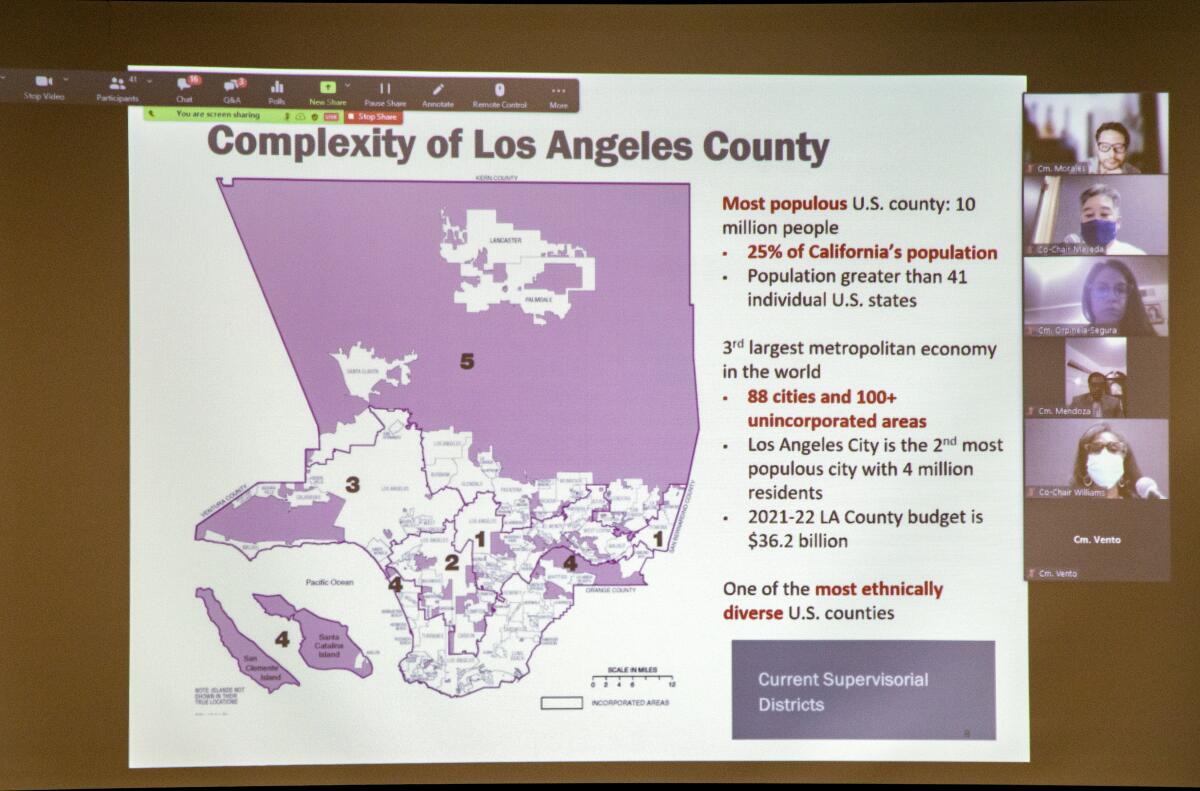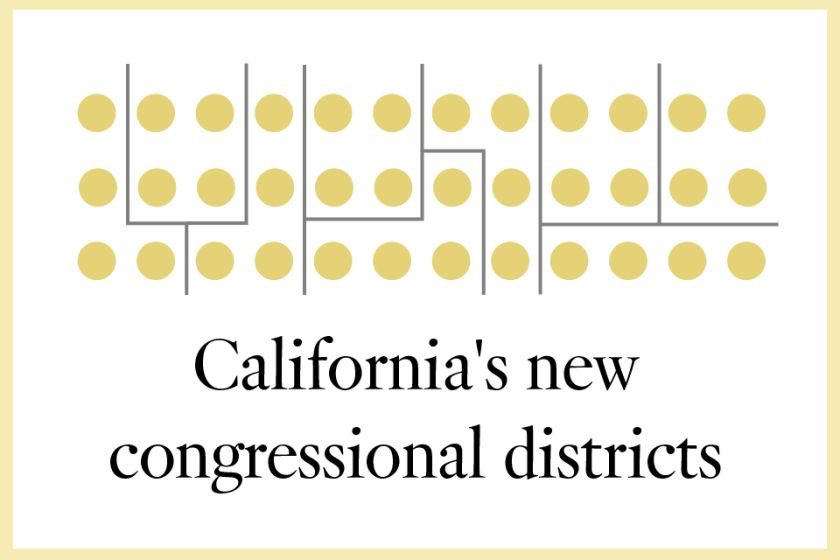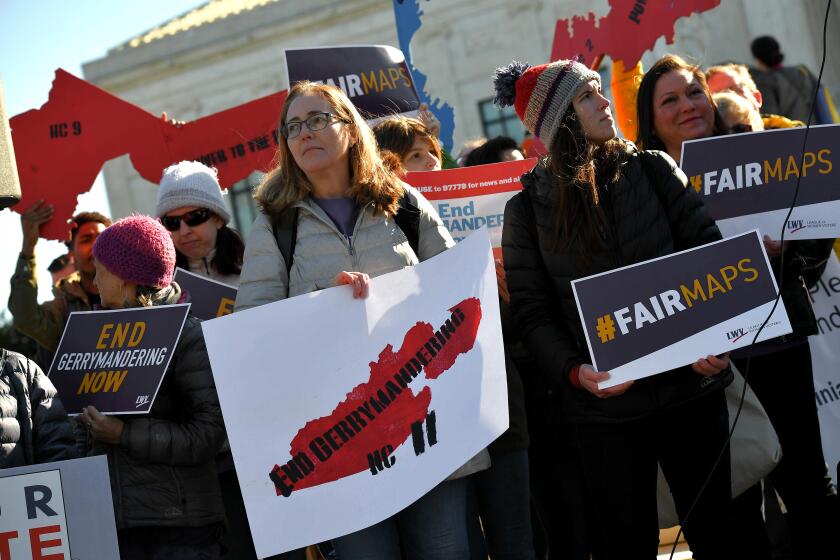Pat yourself on the back, California. Gerrymandering has been squashed

- Share via
Around the country, states are being sued for drawing new political maps that civil rights advocates or political parties believe are unfair.
Texas is fighting allegations that its maps disenfranchise Latino voters. Alabama was sued for maps that didn’t give Black voters enough political power. North Carolina courts deemed that state’s maps too partisan. Michigan, Ohio, New Mexico, New York, Kentucky and Maryland are also dealing with lawsuits stemming from the once-a-decade redistricting process of drawing new political boundaries to reflect shifts in population.
California, please take a bow.
Last week was the deadline to sue in state court over California’s new political maps and no one filed a lawsuit. While it’s still possible to challenge California’s maps in federal court, that isn’t likely because the state’s approach prioritizes drawing districts that comply with the federal Voting Rights Act requirements to ensure representation of racial and ethnic groups. Experts who watch redistricting battles across the nation say the Golden State has reached a significant milestone.
“There was a lawsuit in every single state in the country in the last redistricting cycle,” said Eric McGhee, a political scientist with the Public Policy Institute of California. “The notion that there would be no significant lawsuit brought against the maps in this cycle in California is really remarkable.”
It’s a strong sign that the commission in charge of drawing new legislative and congressional districts followed the rules and crafted a set of maps that satisfied many constituencies in our diverse state. Gerrymandering has been squashed.
California has a new congressional map after losing a seat due to relatively flat population growth. Use this interactive map to explore the state’s new political boundaries.
California voters should feel good about playing a part in this win for democracy. In 2008 and 2010, voters threw out the old system that allowed politicians to draw boundaries for state legislative and congressional districts that favored incumbents and replaced it with one that gives the power to an independent commission without a partisan agenda. California is one of just eight states that redistricts this way — most still allow the politicians who control the Legislature to draw districts that benefit their party.
Two important aspects of California’s redistricting commission likely played a role in the lack of lawsuits: Its bipartisanship and its exclusion of elected officials. The commission is made up of ordinary citizens — including five Democrats, five Republicans and four independents. After months of public meetings in which they drew several drafts of the maps and were openly lobbied by interest groups around the state, the commission unanimously approved the final maps in December. A unanimous vote from representatives across the political spectrum on such a potentially contentious issue is particularly significant in these highly polarized times.
Which is not to say the entire process was a resounding round of kumbaya. The meetings were sometimes chaotic, commissioners drew some odd map drafts and partisans grumbled throughout. Before the maps were finalized, the California Republican Party sued the commission to try to fire its legal advisors and force disclosure of private meetings and research on race-based voting patterns, but the suit was thrown out of court.
The state’s nonpartisan system may make it even harder for Democrats to keep the House next year.
And Californians don’t have to look out of state to find troubling cases of politicians wielding too much influence on the redistricting process. Right here in Los Angeles, the City Council Redistricting Commission is made up of politicos appointed by elected officials, and the council gets the final say on maps. In San Luis Obispo County, the Board of Supervisors is being sued by community members who say they approved districts that unfairly give Republicans an advantage in three of five seats even though Democrats hold a majority across the county.
Voters in every city, county or state would be better served by independent commissions drawing fair lines, because the policies that govern society flow from the people voters elect. Our democracy doesn’t work if gerrymandering keeps voters from electing people who represent them.
More to Read
A cure for the common opinion
Get thought-provoking perspectives with our weekly newsletter.
You may occasionally receive promotional content from the Los Angeles Times.











